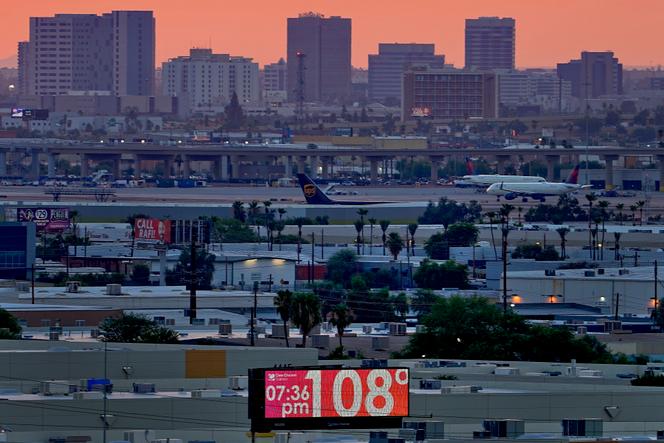


At the end of 2006, British economist Nicholas Stern delivered a landmark report on climate change. In it, Stern asserted that, while the cost of achieving carbon neutrality by 2050 was "significant but manageable," the cost of doing nothing and letting global warming run rampant was much higher. He added an economic dimension to the obvious environmental arguments for fighting climate change: in the long term, the cost of taking action would be lower than that of inaction.
Almost two decades later, after June and July months that were the hottest in modern history and record ocean temperatures, Allianz economists looked at the cost of the heatwaves that hit the United States, China and southern Europe between May 1 and August 4.
They concluded that the global gross domestic product (GDP) dropped by 0.6%. China was hit particularly hard (1.3% of its GDP evaporated), while the US was much less affected (0.3%). Europe lies somewhere in between the two: Greece and Spain lost 0.9% and 1% of their GDPs, respectively, above Italy (0.5%) and France (0.1%).
By Allianz's own admission, these calculations are approximate and incomplete. They do not take into account the costs associated with natural disasters, such as forest fires, droughts or the severe flooding that accompanies them. They focus solely on the well-documented effect of heat on productivity: a day that is too hot is likely to slow down a worksite, or even lead to its temporary closure. The same thing happens in agriculture, where working conditions can become unbearable. Indeed, employees who work in non-air-conditioned environments are less efficient.
Numerous studies have quantified this phenomenon, and Allianz's economists refer in particular to one conducted in the US in 2021, which pointed out that every day over 90 degrees Fahrenheit (32°C) cost 0.04% in lost wages. It's "equivalent to half a day of strike," noted Allianz chief economist Ludovic Subran.
By applying this result to the number of days that have exceeded 32°C in the US, Europe and China since May 1, the economists reached their conclusion that 0.6% of GDP worldwide had been lost. "Some of this growth will be made up for in the coming months – for example, with building sites that will be completed later," added Subran. "But not everything: The lost agricultural production, in particular, will never be made up. In total, perhaps 0.3% or 0.4% of GDP will not be recovered."
This conclusion confirms many other studies. In January 2022, the Bundesbank (Germany's central bank) investigated the economic impact of climate change on European countries, comparing temperatures between 1960 and 2020. Rather predictably, the study suggested a greater loss in warmer countries.
You have 45.25% of this article left to read. The rest is for subscribers only.
